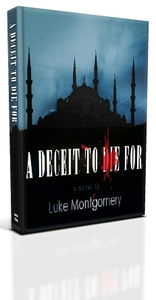The life of a writer is not a glamorous one. He or she generally labors in isolation - gathering relevant facts, rewriting, developing the tedious details of plot and character, rewriting some more, preparing chapter synopses, poring over editor comments, and did I mention rewriting? For a good book, the process often takes years, that is years without reward and or fruit, except for that intensely personal satisfaction derived from the completion of each chapter. What crowns the finished product is the appreciation of the book's readers. In that respect, I have been amply rewarded. Hardly a day goes by that I don't receive an email or personal message from someone who has read the book and was challenged. Today's comments, however, were surprisingly long. 781 words long to be exact. And because they come from a Turkish reader written for an English language publication in Turkey, I was eager to share them with you. Y.E. was also gracious enough to give me permission to do so. Thank you! Review below. Luke Montgomery’s “A Deceit to Die For”: With all its intricacy and deceit, Turkish politics already reads like a page turner. It was about time someone created a skillful and intelligent page turner using Turkey and its politics as the base. Luke Montgomery has done exactly that. Montgomery’s well-researched book draws from the incredible but real affairs in Turkey: The quiet suffering of the Turkish people during the last 10 years from the Orwellian policies of a regime with overt Islamic tendencies, one during which journalists are jailed for criticizing the government, the right to free speech is stifled by intimidating the public and where the government is the Big Brother who monitors private conversations and limits web access. The Western World’s reaction has been to declare the ruling Islamic party an example of a new and convenient concept they coined “Moderate Islam”. Meanwhile, the Turkish government has eliminated the internal checks and balances that are supposed to keep it under control so that it can reign without consequences: The fictitious “Balyoz” case eliminated the opposing Military echelon while another manufactured plot called “Ergenekon” implicated intellectuals critical of the regime. Meanwhile, the common Turk is aware of Imam Gulen who lives in PA, USA who owns Turkish media channels, whose network infiltrated bureaucracy. Gulen operates hundreds of schools globally, including in the US via his organization and network. Luke Montgomery uses these very real ailments and parasites feeding off the Turkish nation as the background in his newly released “A Deceit to Die For” which is available on Amazon.com and is being translated into Turkish. Montgomery then weaves a compelling and modern human tale intertwined with a religious historic secret. The result is a page turner which engages and entertains while challenging the reader to conduct additional research on both the historical intrigue and the modern day politics of Turkey. To a Turkish reader, it presents a uniting mosaic, joining the snapshots of real events in Turkish daily news. To someone who may be less familiar with Turkey, it provides a framework for better understanding the parasites affecting Turkey today. If I were planning a trip to Turkey this summer, this would be the one book I’d pick up. A Deceit to Die For takes the reader on a whirlwind journey from the UK to the USA, from Egypt to Turkey over and over again. The novel is based on the story of a document found in a collection of letters and books acquired by a UK professor which someone wants to keep a secret no matter what the cost. The professor’s family in the US find themselves with the concealed document and confronted with an international organization on a quest to forever bury the 16th century secret this document reveals. This dangerous organization does not hesitate to remove anything or anyone in their way, prompting the professor’s children to flee for their lives while trying to research the historic secret. The story unfolds a mystique that leaves the reader breathless. The author offers clues revealing that the he is not only someone who loves Turkish culture but has also spent a long time in Istanbul. This insight is skillfully scattered throughout the book as a treat to any enthusiast of Turkish culture, it is found buried in the intimate and very real slices of life from modern Istanbul such as the crowded backstreets of Beyoglu and Tunel, or the flavor of a kebap meal enjoyed by the characters with afternoon tea. The plot rolls and the pace is fast, still the multitude of characters have been developed to a certain degree so that the reader can identify with them. More importantly, there are no presumptions and stereotyping. Judgments of good and evil are there but are not divided evenly based on nationality or religion. Instead, the moral compasses of the main characters and their internal dilemmas are revealed to the reader, making “A Deceit to Die For’ a helpful instrument to better understand the mindset of the various interest groups in Turkish politics. An aspect Luke Montgomery seems to have meticulously researched is the contemporary dynamics between government institutions and social classes. He provides the level of observation and detail a native of Turkey would be intimate with, offering realistic snapshots and the private mindset of a suicide bomber, of Hizbullah terrorists and human traffickers, even of government sympathizers with veiled wives. If you are in Turkey, do not bother looking for the author’s web site www.lukemontgomery.net which is censored. We hear a translation is underway and will be curious to see the government’s reaction to it. So until the Turkish edition is printed, look for this book on Amazon.com.
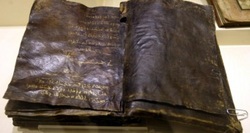 I had the opportunity to be interviewed by Bob Unruh of World Net Daily yesterday and share more about the Iranian claims that the collapse of Christianity is imminent. These claims, of course, are based on the Gospel of Barnabas, a 15th century Muslim conspiracy. In fairness, we shouldn't blame the Iranians for believing something that seems to support their faith, for they are most likely ignorant of where this whole thing originated.. If there is any blame for the contemporary stories circulating about this gospel, it lies with the Turkish elements who keep fabricating these so-called discoveries, first in 1986 and then again in 2012. Read more about this here.
Today, WND published an article allegedly written by former CIA operative Reza Kahlili on the infamous Gospel of Barnabas. Apparently, the Iranian mullahs are claiming that this gospel hidden by the church is about to cause the total collapse of the Christian faith as it records Jesus prophesying the coming of Mohammed and the Muslim Messiah. For those of us who know the truth, it is a ridiculous bit of grandstanding and buffoonery. However, I have no doubt that it plays well in the Middle East and has plenty of pious followers puffing out their chest in anticipation of the imminent victory of their faith. The sad fact, however, is that this little "factoid" about the evil church suppressing the Gospel of Barnabas and covering up the fact that Jesus predicted the coming of Mohammed has been trotted out with amazing regularity for decades. Of course, the intent is clear. Keep the "us" versus "them" game going and constantly sling mud at the only monotheistic faith that could possibly compete with Islam. In one respect, Muslims are no different from people anywhere. They are predisposed to believe any report that confirms what they already believe and will do no research to verify the authenticity of the claims being made. Maybe the question for us today is what have we believed without conducting proper intellectual due diligence?
For a limited time only, you can purchase A Deceit to Die For as an ebook at Smashwords for just $2.99! If you take advantage of this offer, please leave a review at the Smashwords website. Coupon Code: KR36JThanks,
Luke
It sounds a bit awkward in English - "freedom of thought". The more common expression is freedom of speech or freedom of expression. But, in Turkish, one of the ways to convey this same idea is "düşünce özgürlüğü", which, translated literally is "freedom of thought".
It always struck me as funny, and I would often joke with my Turkish friends that they had freedom to "think" anything, but not the freedom to "express" their thoughts. Sadly, many Turkish journalists are currently in jail for doing just that - expressing their thoughts. It got me thinking though. Here in America, we are all very proud of our "freedoms", and the first Amendment to the Constitution enshrines our inalienable right to "freedom of expression"
This right is sacrosanct in our society. Americans exercise this right in all kinds of "offensive" ways. For example, by making jokes about sitting Presidents that would get you shot in some countries and land you in prison in others. In America, this has turned into a lucrative profession, e.g. John Stewart. We simply laugh at the joke and move on, maybe without even thinking how wonderful it is to live in country where one can ridicule their leaders.
Other people have "exercised" this right by burning the American flag, which has to be one of the most paradoxical demonstrations on the planet. "I protest the existence of this country which affords me the right to do what I'm doing right now!" (This person needs their head examined). However, I'm not against people burning the American flag for the simple reason that it makes it easier to identify the mentally incompetent... Besides, freedom of expression is sacrosanct! It is an inviolable right of the individual! That is the American way, or so we say. It's a worn out topic. I want to go back to "freedom of thought"
You see, I'm not sure that "freedom of thought" is really possible in this country (or any other country for that matter). Why? Because the crucial ingredient for any healthy thought process is accurate factual information.
For example, if one wanted to weigh the merits of injecting children with a liquid containing live attenuated polio viruses versus dead (inactivated) viruses, reliable data input would be a crucial prerequisite to working those mental muscles. Imagine "thinking" about this problem without having any data. It wouldn't do much good. You have the freedom to think about it, but realize quickly that no benefit can be derived from the effort.
In the same way, citizens of this country need data, information, facts, in order to engage in productive thinking. I am not, of course, saying that productive mental activity happens automatically in the presence of "knowledge". Minds still have to be trained in the fine art of drawing appropriate conclusions, but without facts, no mind, no matter how astute, can render a true verdict.
So, I ask, do you feel like you have the "facts" necessary to make informed decisions? For me the answer is clearly, "No!" For example, I want to know who is responsible for giving millions of dollars ear-marked for small business to gigantic corporations, how much money the Federal Reserve has given to foreign central banks and American banks, who redacted the statements released by Attorney General Eric Holder, who actually penned the healthcare bill that even Pelosi had not read, who decided to recognize the independence of Kosovo but not that of Ossetia, and jillions more besides.
You see without the right facts our thoughts aren't worth a damn, much less a penny.
Of course, this is why we have the "Freedom of Information Act". Does anyone think it has made government transparent, or that it has aided in preventing or even punishing corruption? I'd love to hear your thoughts.
In the midst of the War on Terror and the increasing polarization between Islam and the West, it is important to maintain perspective. Although the idea that Muslims can be as kind-hearted and merciful as Christians is not a popular one in some circles, it is true nonetheless. There are "good" Muslims and they're not all dead... Read more from my latest article over at the Washington Times.
I was delighted this morning to find an email in my Inbox from Yesim Erez, a Turkish writer and political commentator who lives in the US. Some of her articles on human rights and civil liberties can be found here. She is the first and I assume only Turk to have read the novel in its entirety, unless some secret and sinister agency has spyware on my computer :-) She has posted a review at Amazon, which I encourage you to read if you want a Turkish perspective on political aspects of the book. As the author, I must admit that the part of the review I liked best was the last sentence, "I am already looking forward to this author's next novel." Thank you, Yesim, for those encouraging words! I'm already working on the skeleton outline for the sequel...
This last week, four Turkish journalists were released from prison after being held for over a year. This should be cause for celebration, but the fact that dozens more remain behind bars dampens the mood somewhat. Maybe, this move by the government was merely an attempt to placate public outrage over the fact that the statute of limitations had run out on the Islamic fascists who burned Alevis and Turkish intellectuals alive in a hotel in Sivas in 1993. Whatever the case, we can be sure that it is not a sincere attempt to uphold justice by the Justice and Development Party (AKP) in Turkey. See the following link for the full story. http://communities.washingtontimes.com/neighborhood/looking-luke/2012/mar/17/playing-fire-journalism-turkey/
I was honored last week by a request from the Washington Times Communities to write a weekly column. Interested reader can find me there weekly under "Looking For Luke". My first article is an introduction to the issue of politics and religion. Having lived in the Middle East for so many years, the issue of politics and religion is one that strikes very close to home, and it was one of the driving force behind the novel. Open question - why are the two so inextricably intertwined? I look forward to hearing your answers....
Today, I woke up to find a message from a fan in Croatia. That was exciting. It is so nice to hear from people around the world who are reading the book and being challenged by it. However, the content of the message was sobering. Apparently, she received threatening messages from Islamic groups for "liking" my link on Facebook. These are people who haven't even read the book!! I would like to say I'm shocked, but I'm not. I lived in the Middle East long enough to know that passion often overrides judgment... It feels like an Orwellian world.
On the positive side, our website has been visited from over 30 countries, ten of which are predominately Muslim. I'm already receiving requests to translate the book into other languages (!), namely Dutch. Anybody know a good Dutch translator?
|



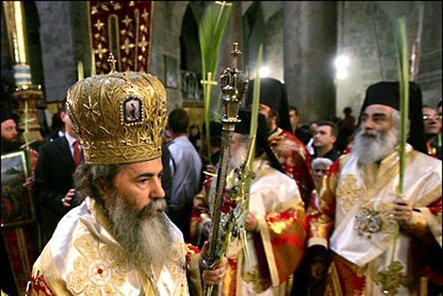
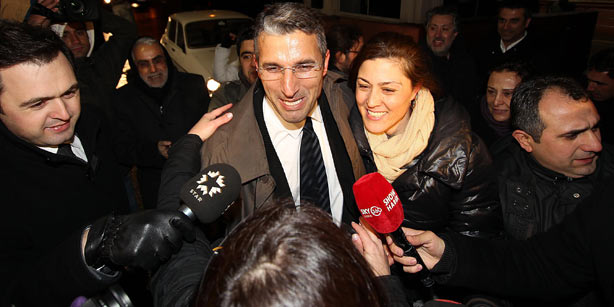
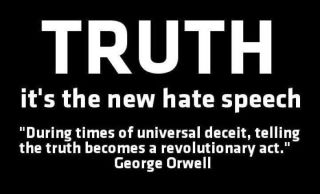
 RSS Feed
RSS Feed
